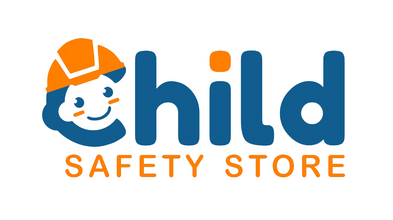
Warning About Toxic Metals in Baby Food
When it comes to overall child safety, we try not to leave any stone unturned. This includes the food and drinks that go into our children’s bodies. Proper nutrition can help to establish a healthy lifestyle as your kids continue to grow. Unfortunately, a report released in February showed that there might an alarming amount of toxic metals in baby food.
Understanding Toxic Metals in Baby Food
According to the New York Times, the report showed troublingly high levels of certain toxic metals in baby food. These potentially hazardous metals include:
- Arsenic
- Lead
- Mercury
- and Cadmium
Exposure to these heavy metals can have extremely negative effects on growing bodies. They have been linked to behavioral impairments, brain damage and even death. To make matters worse, this isn’t a simple story about a single type of baby food. It spans much of the industry, including some organic foods.
How Does Metal Get into the Food?
There are a variety of ways that toxic metals can end up in food. Since these metals are found in the environment, they can get into the water and soil where the food grows. This problem can also stem from the packaging or manufacturing plants. There are really a wide variety of ways that food can become contaminated.
To this end, many parents may think the solution is switching to organic foods. Unfortunately, as we briefly mentioned above, this may not help. Organic food will likely contain lower amounts of pesticide, but metals may still be present. After all, many times the metals are in the soil itself.
What Can Be Done?
Luckily, there are a variety of ways in which parents can limit the risk of exposure to toxic metals in baby food. Here are a few for parents to consider:
Make Your Own Baby Food
Instead of relying on store-bought, pre-packaged foods, try to make your own. That way, you choose the ingredients and you can completely bypass all of the potential contamination from the manufacturing process.
Serve a Well-Balanced Diet
Serving a variety of fruits, veggies, grains and lean protein to your baby is the best path to a healthy diet. Proper eating can even help prevent tooth decay.
Breastfeeding, if Possible
Granted, breastfeeding is not possible for all families. That said, in the cases when a child can be breastfed, it can help to greatly reduce the risk of heavy metal poisoning. Just like other baby foods, formula may contain toxic metals.
Check Your Water
Lead can be very hazardous to a person’s health. To this point, have an expert check your water. Older lead pipes could be leaking it into your water. Additionally, arsenic may contaminate well water. Drinking water is a great habit, so it’s best to make sure that your is helping, rather than harming, your health.
Don’t Panic
Now, obviously toxic metals in baby food sounds very scary. In truth, it is, but it may not be quite as dangerous as it seems. As of March 5th, the government is making a concerted effort to set rigorous testing standards for the presence of heavy metals in children’s food.
In the meantime, parents should follow the steps above to mitigate damage and prevent as many of these heavy metals from entering their children’s bodies. If you have further questions about toxic metals, consult your pediatrician.
